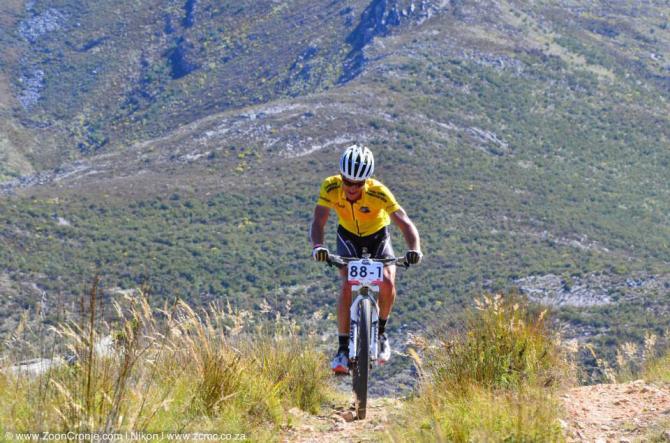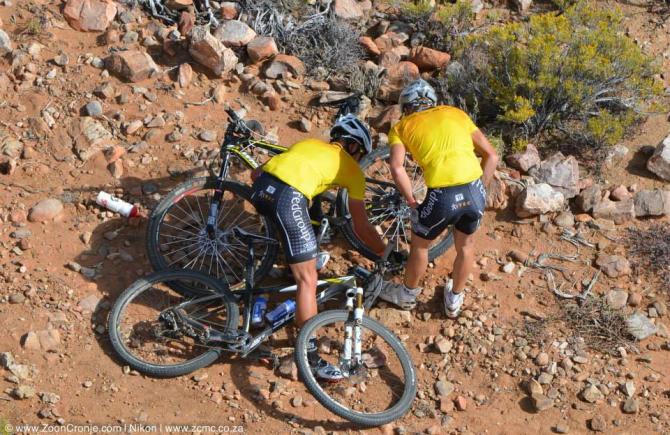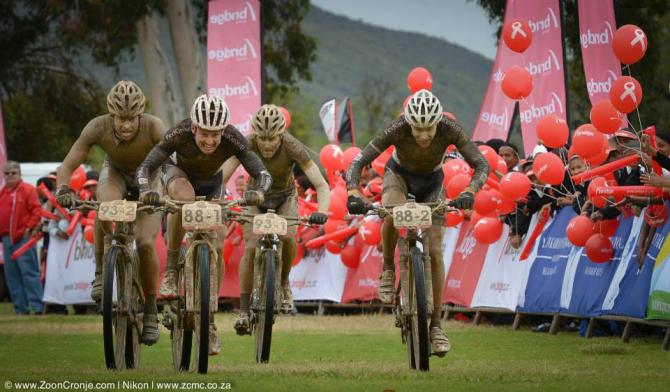Stewart's appeal of positive doping test denied
No Cape Epic for elite South African mountain biker



South African mountain biker Brandon Stewart will not compete in this year's Cape Epic mountain bike stage race after his appeal against a positive doping test was denied on Monday.
Stewart, who was South African cross country national champion in 2008, tested positive for testosterone in an out of competition test in July of 2013. He had taken two injections of a testosterone booster, administered by his doctor between February and April of 2013.
The treatment was given for depression and mood swings. Stewart had contacted South African Institute for Drug-Free Sport (SAIDS) to request a Therapeutic Use Exemption (TUE) so he could race while receiving treatment. He has reported that SAIDS told him that he could compete while his application was processed, but in April he was notified that his TUE application was denied because his testosterone levels were not enough below normal to justify the treatment. It was suggested that he have further tests from an endocrinologist approved by SAIDS and that he could continue racing in the meantime.
Stewart halted treatment and was then informed that his second application, based on the endocrinologist's reports, had also been denied.
The positive out of competition test occurred two days before being told that his second TUE appeal was unsuccessful and three months after having stopped treatment. He was formally notified by SAIDS of the test in October.
He has since appealed the positive test result, noting that he had kept SAIDS informed of his treatment and then stopped it after his first TUE application was turned down.
Khalid Galant, SAIDS CEO said in an official statement, "The cyclist claimed that he had a legitimate medical condition that warranted the use of testosterone. He had previously applied for a Therapeutic Use Exemption (TUE) for the use of testosterone. The SAIDS TUE Commission denied the application based on the international criteria that the use of the substance was elective and not medically essential."
Get The Leadout Newsletter
The latest race content, interviews, features, reviews and expert buying guides, direct to your inbox!
"The national anti-doping rules afforded the cyclist the opportunity to first lodge an appeal against the denial of his TUE, before a formal doping charge would be filed," said Galant.
The appeal was heard on the January 28, 2014 and the decision handed down on March 3, 2014. The Appeal Tribunal upheld the decision of the TUE Commission to deny the therapeutic use of testosterone.
With his appeal against SAIDS' refusal to allow the TUE rejected, Stewart will have hearing at which he may be banned for the positive doping test result. He has the option to appeal the ruling to the Court of Arbitration in Switzerland before he is formally charged with doping.
Galant said, "The athlete reserves the right to appeal the decision made by the Appeal Tribunal to the Court of Arbitration (CAS) in Switzerland and has up to the 25th of March 2014 to do so. Should Stewart forgo the last avenue for appeal, he will be charged with a doping offense and a hearing date will be set."
SAIDS confirmed that the provisional suspension as communicated to Stewart in correspondence sent to him on October 31 2013, remains in place. It means that Stewart will not be able to compete in the Cape Epic later this month. He had finished all 10 editions of the race so far, one of only nine riders to do so. He also won the Best African rider classification in 2007 and 2012. He had already withdrawn from the event this year pending the outcome of his case.
In response to latest developments in the Stewart case, the Cape Epic organizers reiterated their "zero tolerance" approach to doping: last year it became the first race in world cycling to issue a lifetime ban to any rider found guilty of illegal use of performance-enhancing drugs.
"The Cape Epic ban also forbids anybody found guilty of doping from participating in the event in a formal capacity, including as a registered team manager," read a statement from Cape Epic.
"We don't know what the outcome of the formal hearing will be and obviously don't want to prejudge the issue, but it is disappointing that this sort of negative publicity is being aired when cycling is doing so much to get its house in order," said Cape Epic founder Kevin Vermaak.